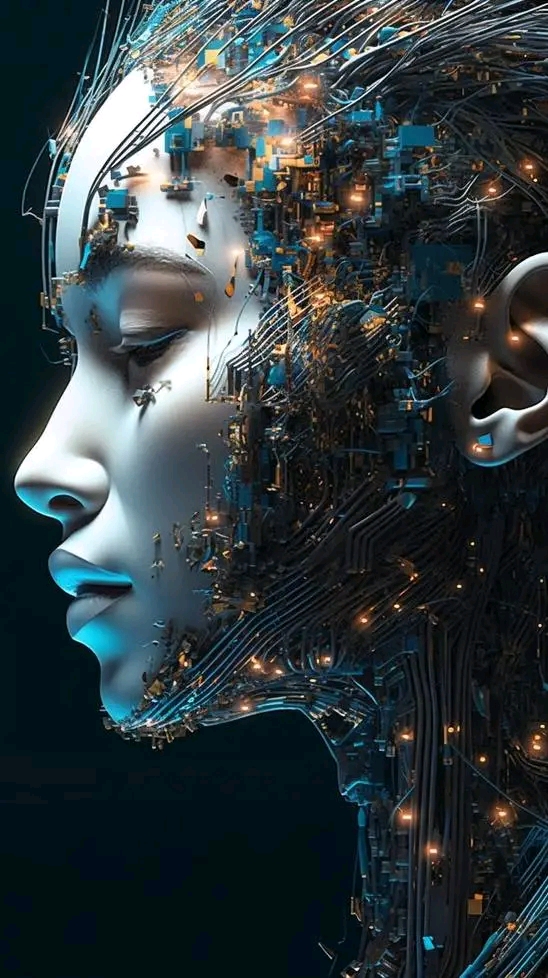
THE FUTURE OF ARTIFICIAL INTELLIGENCE: TRANSFORMATIVE TECHNOLOGIES AND ETHICAL CONSIDERATION
The future of AI holds transformative potential, impacting various industries. Ethical considerations are crucial, focusing on responsible AI development, unbiased algorithms, and privacy safeguards to ensure positive societal outcomes. Continued collaboration between technologists, policymakers, and ethicists is essential for navigating these advancements responsibly.
The future of Artificial Intelligence (AI) promises a profound impact on society, ushering in transformative technologies that can revolutionize various aspects of our lives. As we delve into this future, it is imperative to navigate the landscape with a keen awareness of ethical considerations to ensure responsible AI development and deployment.
One of the key transformative technologies on the horizon is the advancement of machine learning algorithms. These algorithms, driven by vast datasets and enhanced computing power, have the potential to significantly improve decision-making processes across industries. From healthcare and finance to transportation and education, AI algorithms can optimize operations, streamline workflows, and provide valuable insights.
In healthcare, AI is poised to revolutionize diagnostics and treatment plans. Machine learning models can analyze complex medical data, identify patterns, and offer more accurate diagnoses. Personalized treatment plans, tailored to an individual’s genetic makeup, could lead to more effective and efficient healthcare interventions.
In the realm of autonomous vehicles, AI plays a pivotal role in enhancing safety and efficiency. Advanced algorithms enable vehicles to perceive and respond to their environment, reducing the likelihood of accidents and optimizing traffic flow. This transformative technology has the potential to reshape urban planning and transportation infrastructure.

THE FUTURE OF ARTIFICIAL INTELLIGENCE: TRANSFORMATIVE TECHNOLOGIES AND ETHICAL CONSIDERATION
Furthermore, AI-driven innovations are reshaping the way we interact with technology. Natural Language Processing (NLP) and computer vision technologies are making human-computer interactions more intuitive. Virtual assistants, powered by sophisticated AI, can understand and respond to spoken language, making our devices more user-friendly and accessible.
Despite the tremendous potential of these transformative technologies, ethical considerations must remain at the forefront of AI development. One critical aspect is bias mitigation. Machine learning models trained on biased datasets can perpetuate and even exacerbate existing societal biases. Ensuring diverse and representative datasets and implementing fairness-aware algorithms are crucial steps in addressing this issue.
Another ethical concern is transparency in AI decision-making. As AI systems become more complex, the “black box” nature of some models raises questions about accountability and understanding the rationale behind their decisions. Striking a balance between algorithmic complexity and interpretability is essential for building trust in AI systems.
Privacy is yet another ethical frontier in the AI landscape. As AI applications increasingly rely on vast amounts of personal data, safeguarding individual privacy becomes paramount. Stricter regulations and robust privacy-preserving techniques are necessary to protect individuals from unauthorized data use and potential abuses.
Continuing on the future of Artificial Intelligence, another pivotal aspect is the integration of AI with the Internet of Things (IoT). The synergy between AI and IoT has the potential to create smart, interconnected systems that enhance efficiency and responsiveness. Devices embedded with AI algorithms can analyze real-time data, enabling proactive decision-making in areas such as smart cities, agriculture, and industrial automation.
THE FUTURE OF ARTIFICIAL INTELLIGENCE: TRANSFORMATIVE TECHNOLOGIES AND ETHICAL CONSIDERATION
Smart cities, for instance, can benefit from AI-driven solutions that optimize energy consumption, manage traffic flow, and enhance public services. Through the integration of sensors and AI algorithms, these cities can respond dynamically to changing conditions, improving overall sustainability and quality of life for residents.
In agriculture, AI-powered solutions can revolutionize crop management. Precision farming techniques, driven by data analytics and machine learning, enable farmers to make data-driven decisions regarding planting, irrigation, and pest control. This not only maximizes crop yields but also minimizes environmental impact by optimizing resource usage.
However, as AI becomes more deeply embedded in everyday life, there is a growing need for responsible governance. Regulatory frameworks must evolve to keep pace with technological advancements, ensuring that AI systems adhere to ethical standards and legal guidelines. Striking the right balance between fostering innovation and safeguarding against potential risks is a complex challenge that requires ongoing attention.
The future of AI also involves addressing the impact on the job market. While AI has the potential to automate routine tasks and increase productivity, it may also lead to job displacement in certain sectors. Investing in education and training programs to equip the workforce with skills that complement AI technologies is essential for mitigating these challenges and fostering a smooth transition into an AI-driven future.
Moreover, global collaboration is paramount in addressing ethical considerations and establishing universal standards for AI development. As AI technologies transcend geographical boundaries, an international consensus on ethical guidelines, data sharing, and responsible AI practices becomes crucial to prevent disparities and ensure a fair and inclusive global AI landscape.
THE FUTURE OF ARTIFICIAL INTELLIGENCE: TRANSFORMATIVE TECHNOLOGIES AND ETHICAL CONSIDERATION
In the future, collaboration between technologists, policymakers, ethicists, and the wider community will be essential to establish ethical frameworks for AI.
Open dialogue, interdisciplinary cooperation, and ongoing scrutiny of AI applications will contribute to the responsible development and deployment of these transformative technologies.
By addressing ethical considerations proactively, we can ensure that the future of AI aligns with societal values and promotes positive outcomes for humanity.
Leave a Reply